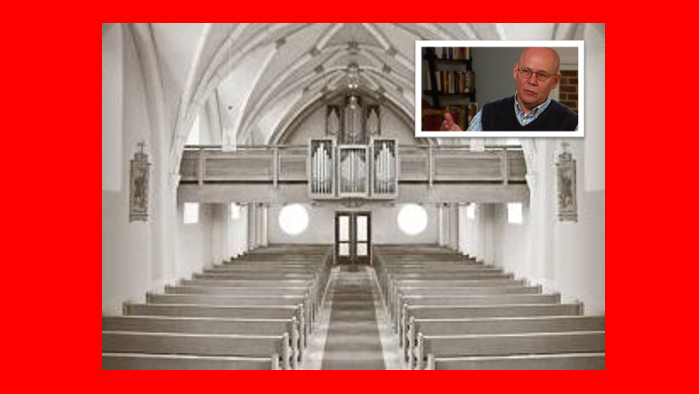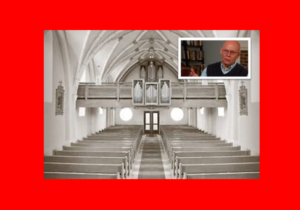EDITOR’S NOTEBOOK: What is Evangelicalism?
Do we need a new church council to define what is – and is not – an evangelical?

Editor’s Note: Most Saturdays we will feature this “Editor’s Notebook” column. MinistryWatch President Warren Smith will offer his opinion on stories in the week’s news or, sometimes, offer a behind-the-scenes look at how and why we do what we do. In this week’s ‘Notebook,” we are excerpting a portion of Warren’s upcoming book A Lover’s Quarrel with The Evangelical Church. 
One of the most frustrating aspects of covering the evangelical world is deciding what the word “evangelical” means. The use of the word “evangelical” reminds me of the fable of the blind men who grabbed the elephant. Seven men described the elephant in seven different places, and each described the elephant differently.
This fable reminds us that words matter. What we call things matters. And our definition of the word “evangelical” matters in our religious lives, our political lives, and in the broader culture.
So, what is an evangelical?
In 1989, David Bebbington popularized (at least among academics and intellectuals) a definition of evangelicalism that still bears consideration. His definition came to be known as the “Bebbington Quadrilateral.” It first appeared in his book Evangelicalism in Modern Britain: A History from the 1730s to the 1980s. The four qualities of evangelicalism he identified are:
- Biblicism: a high regard for the authority of the Bible,
- Crucicentrism: a belief in the centrality of the atoning work of Christ on the cross,
- Conversionism: the belief that human beings need to be converted, and
- Activism: the belief that the gospel needs to be expressed in effort.
This model is helpful, but not specific enough to be considered a definition. Otherwise, why would Wheaton College or the National Association of Evangelicals or MinistryWatch not simply adopt these four distinctives and call it a day? The fact that no evangelical organization I know of has done so is proof enough of the limitations of the Bebbington Quadrilateral.
Access to MinistryWatch content is free. However, we hope you will support our work with your prayers and financial gifts. To make a donation, click here.
So, let us look at another definition. The National Association of Evangelicals has identified not four, but seven, essentials of evangelical faith:
- We believe the Bible to be the inspired, the only infallible, authoritative Word of God.
- We believe that there is one God, eternally existent in three persons: Father, Son, and Holy Spirit.
- We believe in the deity of our Lord Jesus Christ, in His virgin birth, in His sinless life, in His miracles, in His vicarious and atoning death through His shed blood, in His bodily resurrection, in His ascension to the right hand of the Father, and in His personal return in power and glory.
- We believe that for the salvation of lost and sinful people, regeneration by the Holy Spirit is absolutely essential.
- We believe in the present ministry of the Holy Spirit by whose indwelling the Christian is enabled to live a godly life.
- We believe in the resurrection of both the saved and the lost; they that are saved unto the resurrection of life and they that are lost unto the resurrection of damnation.
- We believe in the spiritual unity of believers in our Lord Jesus Christ.
It is always dangerous to speak for others, but I can imagine that Augustine, Aquinas, and Athanasius would find much to like, and nothing to refute, in this statement. In other words, while the NAE statement is broadly biblical, what makes it distinctively evangelical? Many Catholics, Orthodox, or mainline Protestants could affirm what the NAE calls the “essentials of evangelical faith.”
It is also worth noting that a few items are notably missing from the NAE statement. If we compare the NAE’s statement of faith to the Nicene Creed or the Athanasian Creed, we note the NAE’s failure to include a distinctive about creation.
It is a critical omission. A weak or “thin” doctrine of creation and the subsequent “Fall” has created a failure of the evangelical church to be convincing on matters that require a robust Christian ontology and Christian anthropology to be convincing, such as abortion and marriage, to name but two of many.
It is also interesting that a statement from the National Association of Evangelicals would omit any mention of, well, evangelism. Bebbington’s “activism” means more than evangelism, but it certainly includes evangelism. Bebbington, in fact, created an opportunity for the NAE to refine its definition, to specifically say that an evangelical is one who evangelizes, one who shares the gospel by word and deed.
We should also note that the largest evangelical denomination in the country, the Southern Baptist Convention, is not a member of the NAE. Neither is the Presbyterian Church in America. Further, many of the largest evangelical churches in America are non-denominational. Neither the NAE nor any other authority has been successful in defining the term or protecting that definition. This crisis in authority in evangelicalism has profound implications. In the absence of any universally recognized authority in the evangelical movement, the incentive to build or seize platforms has become irresistible. The word “evangelical” has become what the largest and loudest self-identified evangelical says it is.
I would not presume to create my own definition here, but I would here reiterate that theologian Robert Webber was right when he said that the “most pressing spiritual problem of our time is who gets to narrate the world.” In eras past, when narratives about God, the church, or other important matters were false or wore thin, the best minds got together and attempted to solve that problem. The early church councils come immediately to mind. More recently, and more distinctively evangelical in nature, we can look to the 1978 Statement on Biblical Inerrancy or the 1974 Lausanne Covenant on world evangelism.
I have no idea who should lead this project. The Evangelical Theological Society? The National Association of Evangelicals? An ad hoc committee? I do not know the right answer, though I think the right answer would be some combination of all of the above.
We are long overdue for the creation of such a council and such a definition. I will be the first to admit that the current crisis in authority and the erosion of the evangelical “brand” makes such a project difficult.
But leaders do hard things, and the need for such a council and a new and specific definition for the word “evangelical” is more urgent than ever.



